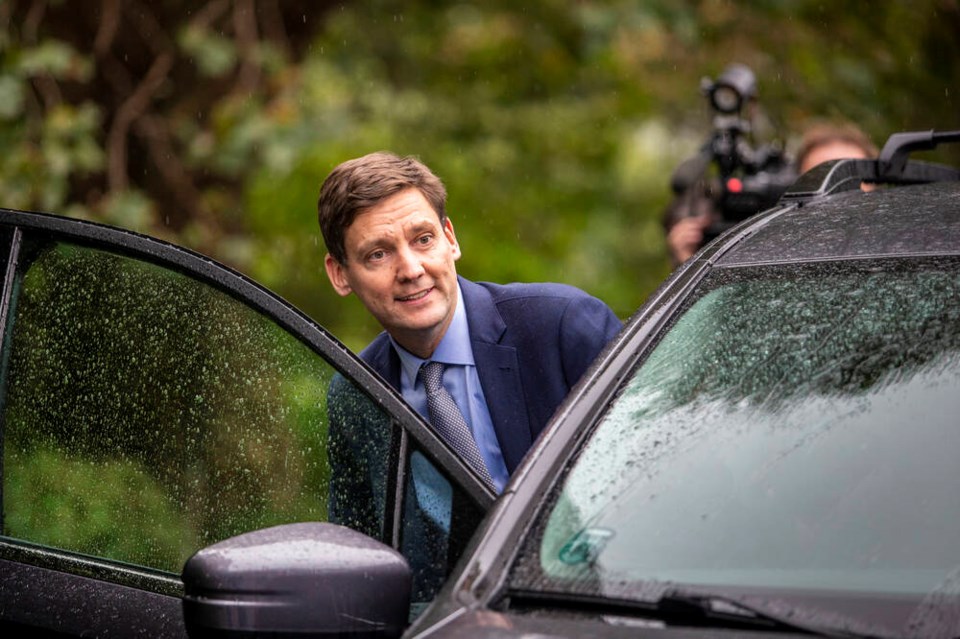We are seeing more of the nature of our new premier.
He is one-part eager beaver, one-part lone wolf.
David Eby was the premier-in-waiting for many years. Had John Horgan not outmanoeuvred Christy Clark for the opportunity to co-op Andrew Weaver’s Green Party in 2017, Eby was pretty much mentally measuring the drapes for the Opposition Leader’s office.
Instead, he had to wait and wait and wait some more. And when the chance came last year when Horgan’s health prompted his resignation, he had so clearly built the establishment NDP support as to make his caucus competition tuck tail and hail him as the successor.
Of course, as we all know, there was a pretty significant speedbump to deal with in Anjali Appadurai’s left-field candidacy that voraciously sold memberships and threatened to take the race. With the Eby campaign’s assistance, the party’s internal review found Appadurai’s membership recruitment techniques outside the sandbox and disqualified an opponent who could well have catapulted into the premier’s office. She was probably measuring the drapes, too.
Eby’s learning in that debacle was that his campaign style was flat when it needed to be fizzy, so even though he was an eventually acclaimed candidate, he began acting like he was running for his life. Policy after policy after policy began oozing from pores, as if he had been biting his tongue for ages and could wait no longer – not for the party to proclaim him leader, not for an election campaign, but just because the premier’s job was in his sightline.
His spring to life sent out signals on housing, on crime and safety, on mental health approaches, on the Downtown Eastside. He was suddenly a premier who was also the Minister of Everything.
When it came time to put his cabinet together, he chose to elevate by several steps Katrine Conroy as his most important appointment in finance. Either she had been a sleeping giant or, more likely, he is the alert six-foot-seven one.
Of late, Eby has decided it isn’t enough to have cabinet ministers and a bureaucracy to inform him, but that he needs dedicated advisers directly in his office: The prominent former deputy health minister and pandemic vaccine guide Dr. Penny Ballam on health, the former Victoria mayor Lisa Helps on housing and Coast Salish laywer Doug White on Indigenous issues.
These moves are exactly the sort of confidence-deflating exercises that make ministers and their teams feel like fifth wheels. They smack of micro-management approaching nano-management. They distort the chain of command. They offer little additional value except to have people within earshot of the big guy when he calls across the office for an answer.
But they also signal a lone wolf premier who wants to do it alone and not depend on the team. This is the modern design of first ministers. Our prime ministers have centralized power in their offices for decades, with many ministers saying they rarely saw the boss one-on-one. It is less of a construct of the premiers, although earlier BC Liberal leaders did centralize considerably the environment for pronouncements and Ontario’s Doug Ford is a larger-than-life presence.
What is also clear is that, with a $6 billion surplus owing to a serendipitous revenue bulge, Eby is into a spending spree to effect a visible impact of his priorities before a 2024 election. He had options to pocket the money to pay down the $98 billion debt, but the eager beaver in him wants to be seen, heard and understood as action-oriented more than deliberative.
This might be wise politics but it is bad economics. The current window for spending seemingly aligns with a slowing economy and an opportunity for a provincial boost. But given the glacial pace of announcements translating into spending, the money won’t get into play until inflation has subsided somewhat and the economy is again reviving, so the timing isn’t likely to be ideal.
It is clear that more federal funds are coming for health, as they will be for reconciliation, as they have been for housing. They don’t appear to require a new layer of idea-driven spending, yet that appears to be the path the province is pursuing.
All because the new premier wants everyone to know he has priorities – loads and loads – and his fingers – all 10 – into them. He’s been waiting a long time, hoarding ideas as he kept his counsel under Horgan, and a spring spree is soon upon us.
Kirk LaPointe is publisher and executive editor of Business in Vancouver and vice-president, editorial, of Glacier Media.




